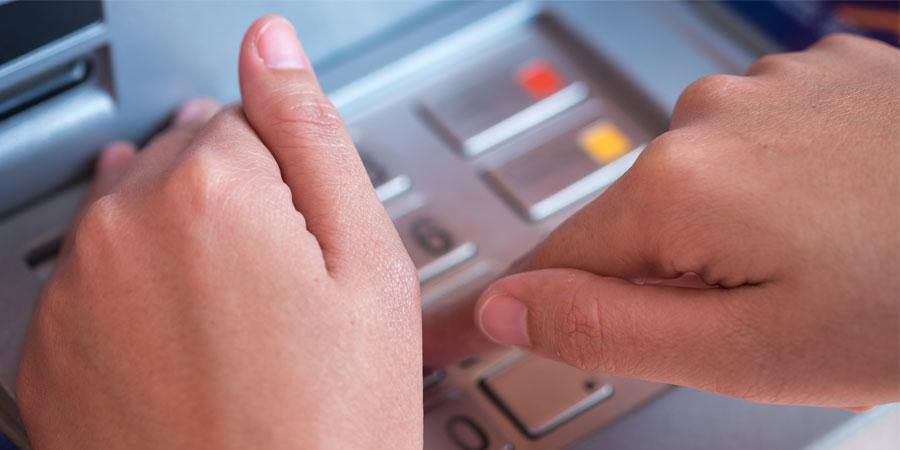Scammers tend to be very active during weekends and holidays as they try to take advantage of credit union closures and people traveling. Unfortunately, they are often successful. Scammers are expert impersonators, using sophisticated technology and their best acting skills to convince you they represent a business, institution or government agency you may trust.
Here at TwinStar, our biggest priority is your financial wellness, and that includes keeping you and your money safe. We’ve put together this guide about recognizing the signs of fraud and protecting yourself from scams.
Popular scams
While the details surrounding how a scam plays out can vary greatly, most follow a similar theme. They try to get victims to share personal information or to pay for a service or product that doesn’t exist. Here are ways to spot a scam:
- Online banking scams. Scammers call to verify recent activities on your card or failed login attempts to online accounts that weren’t attempted. You will be told your account will be shut down and your card will be blocked to prevent additional activity. Scammers ask for your account username and then use the “forgot password” link to send you a secure access code. Then you are asked for your code to verify your identity. They use the access code to connect to your account and start transferring money to other accounts. TwinStar would never initiate a call and ask you for a secure access code, account number, or online banking credentials.
- Watch out for gas station and ATM skimmers. Another popular scam involves malicious card readers attached to real payment terminals where scammers harvest data from every card swipe. When you approach an ATM or gas pump, check for signs of tampering. Wiggle everything and if anything feels or looks off, do not use it. Always cover the number pad when entering your PIN number. Learn more about skimmers at nwcu.com/learn/how-spot-atm-skimmer .
- They demand detailed information before agreeing to process an application. A favorite ploy among scammers is asking for sensitive, non-public information like your date of birth, Social Security number and login information for online accounts. They will typically do this before processing any application for an alleged product, service or job.
- They insist on a specific method of payment. If an online seller or service provider will only accept payment through a wire transfer or a prepaid debit card, you’re likely looking at a scam.
- They send you a check for an inflated amount. Another favorite trick among scammers is to overpay a seller or “employee,” and then ask the victim to return the extra money. In a few days’ time, when the original, inflated check doesn’t clear, the victim realizes they’ve been conned but it’s too late to get back the “extra” money they returned.
- You can’t find any information about the company the caller allegedly represents. A scammer representing a bogus business can easily be uncovered by doing a quick online search about the “company.”
- You’re pressured to act now. Scammers are always in a rush to complete their ruse before you catch onto their act.
Common Targets
Scammers usually cast a wide net to ensnare as many victims as possible. Here are some of the most common targets of scams:
- The unemployed. The internet makes it easy for scammers to learn that you’re looking for a job. If you’re job hunting, be careful not to respond to any emails offering you a “dream position” you never applied for or even knew about.
- Retired individuals. Older people who spend lots of time online are another favorite target for scammers. Also, as relative newcomers to the online world, they may be less aware of the dangers lurking on the internet.
- Children. They are another huge target pool for scammers. Children are naturally trusting and will more readily share information with strangers, which can then be used to steal their identity. Small children will likely not be checking their credit for years, which means a stolen identity can go unchecked until the child grows into a young adult.
Keep yourself safe by following these tips:
- Never share personal information online.
- Don’t open unsolicited emails. If you already have, don’t click on any embedded links.
- Never send money by insecure means to an unknown party.
- Protect your devices by using the most up-to-date operating systems, choosing two-factor authentication and using strong, unique passwords for every account.
- Choose the strongest privacy settings for your social media accounts.
- Keep yourself in the know about the latest scams and learn how to protect yourself.
- Educate your kids about basic computer safety and privacy.
- If you have elderly parents who spend time online, talk to them about common scams and teach them to protect themselves.
- Don’t take the identity of callers at face value, even if your Caller ID verifies their story. If a government agency, utility company or financial institution reaches out to you and asks you to share personal information, tell them you’ll contact them on your own and then end the call.
- Never accept a job or agree to pay for a purchase or service without thoroughly researching the company involved.
The best way to fight fraud is to report it. Fraud can happen to anyone. If you believe you have been the victim of fraud, contact your local law enforcement and call us immediately at 1-800-258-3115 or 1-866-272-4481 (after hours). Also, read about five things we will never ask you.
For more information about TwinStar Credit Union Fraud Services, please visit: TwinStarCU.com/security.
